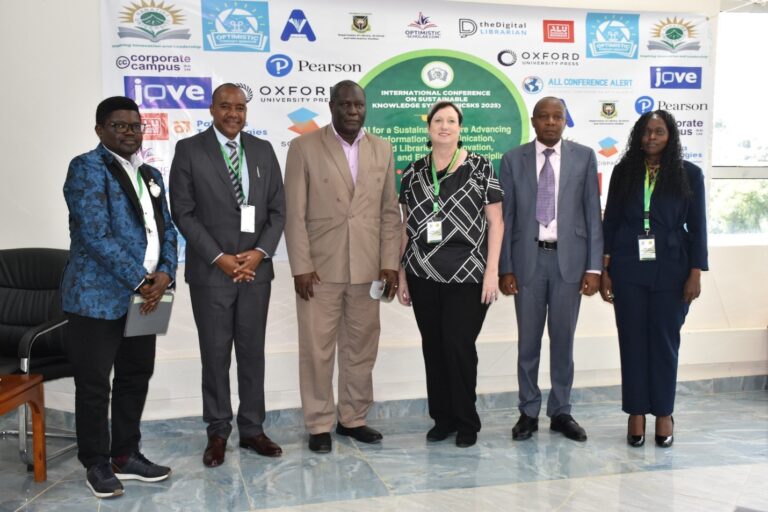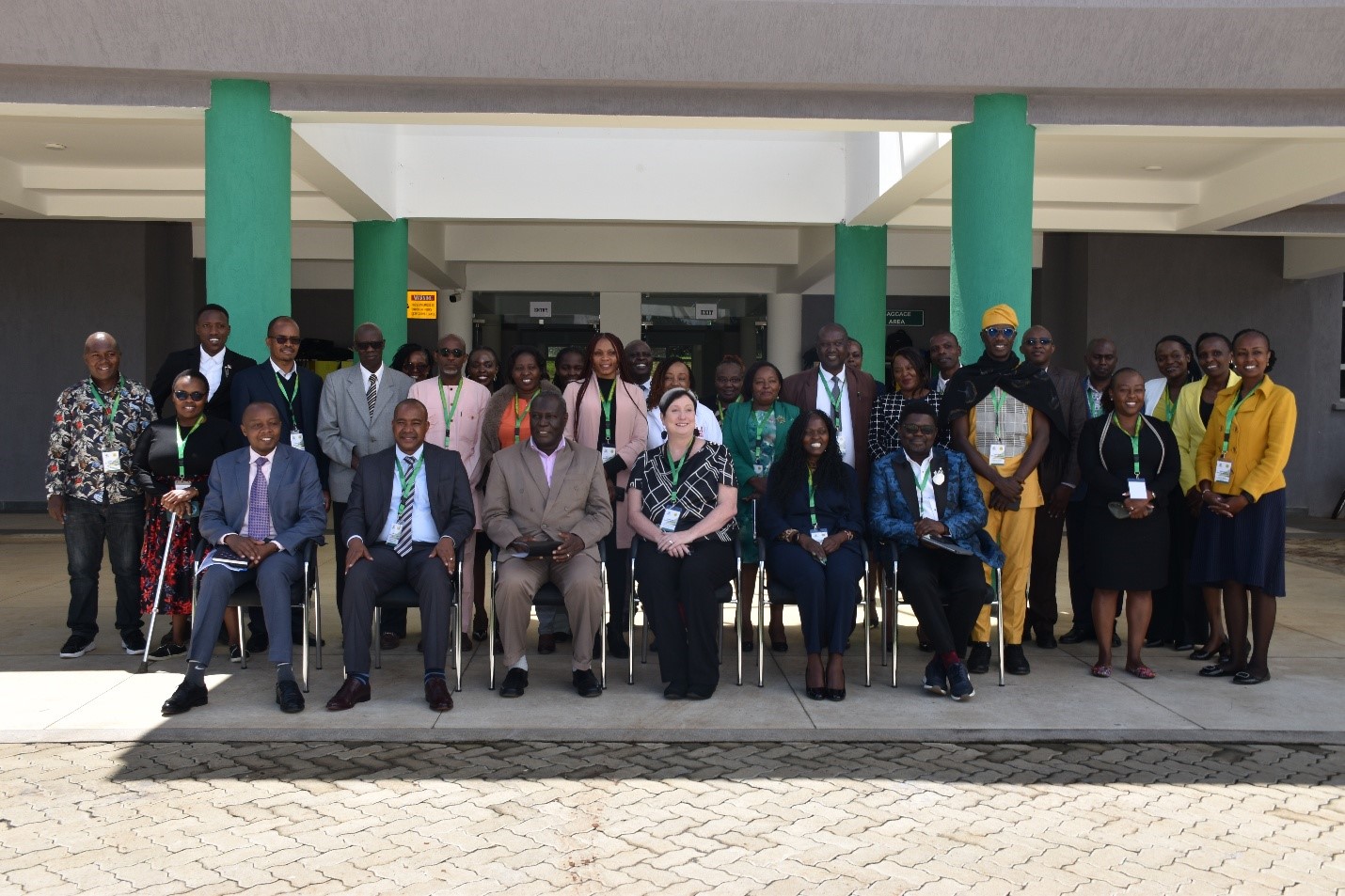Karatina University, in collaboration with Optimistic Concept Services (Netherlands), successfully hosted the International Conference on Sustainable Knowledge Systems (ICSKS 2025) from April 14 to 16, 2025. Organized by the Karatina University Library led by Dr. Everlyn Anduvare the conference was held at the University’s Main Campus. The conference attracted a diverse group of participants from across the country and around the world, including scholars, researchers, librarians, policymakers, and technology experts from both academia and industry.
The event was organized under the theme “AI for a Sustainable Future: Advancing Information, Communication, and Libraries for Innovation, Access, and Ethics.” The aim of the conference was to explore the transformative role of Artificial intelligence in enhancing sustainable knowledge systems across disciplines.
The event featured insightful keynote addresses from experts, including Prof. Marlene Holmner of the University of Pretoria, Prof. Peter Gatiti of Aga Khan University and Chair of the Kenya Library Association, Marco van Hout, Director and Co-founder of the Digital Society School, Prof. Kellen Kiambati, Director Resource Mobilization and International programmes among other distinguished speakers.
The conference was officially launched by Prof. Franklin Wabwoba, Deputy Vice-Chancellor (Academic, Research and Student Affairs), on behalf of the Vice-Chancellor, Prof. Linus M. Gitonga. In his opening remarks, Prof. Wabwoba emphasized the University’s commitment to aligning academic excellence with technological innovation in support of Africa’s sustainable future. “We are honoured to host a dialogue of this magnitude,” he said.

From left Dr. John Ayodele (Chair, ICSKS), Prof. Peter Gatiti (Chair, Kenya Library Association), Prof. Franklin Wabwoba (Deputy Vice Chancellor, Academic Research and Student Affairs), Prof. Marlene Holmner (Keynote Speaker), Prof. Richard Kiai (Deputy Vice Chancellor, Planning, Finance and Administration), and Dr. Everlyn Anduvare (Host and University Librarian).
The participants engaged in dynamic panel discussions and hands-on workshops that explored AI’s applications in education, green libraries, climate action, and ethical use. These sessions empowered attendees with practical skills in AI tools for research and innovation, while exploring responsible and inclusive technology adoption.
A key highlight of the conference was the student-focused workshop facilitated by Pathways Technologiesunder the theme AI Use Cases During which, students from the knowledge ambassadors club had the opportunity to interact with AI experts, explore real-world applications, and gain essential skills for the future of AI-driven education. This workshop was curtain raised by two KarU students from the KADOSA AI Group namely Moses Vundi and Charles Osoro, who presented on the title “From Sci-Fi to Society: Real AI Use Cases Transforming Africa and the World.”
Research presentations and case studies further illustrated AI’s impact across sectors such as healthcare, archives, environmental sustainability, and media. The conference underscored the importance of interdisciplinary solutions, ethical frameworks, and the alignment of AI with the Sustainable Development Goals.

The participants pose for a group photo during the event held at Karatina University
In her closing remarks, Dr. Everlyn Anduvare, University Librarian and Conference Co-chair, called on African institutions to take the lead in shaping the continent’s AI future. “ICSKS 2025 has set a new course,” she said. “Let us build on this momentum and ensure Africa leads with purpose in shaping an inclusive, intelligent future.”
Echoing this sentiment, Conference Chair Dr. Ayodele John Alonge emphasized, “Africa must not only use AI—we must shape it.”
The conference was hailed as a transformative and inspiring space for learning, unlearning, and reimagining knowledge systems in the age of AI. It concluded with the awarding of certificates to participants in recognition of their engagement, curiosity, and commitment to a shared sustainable future.